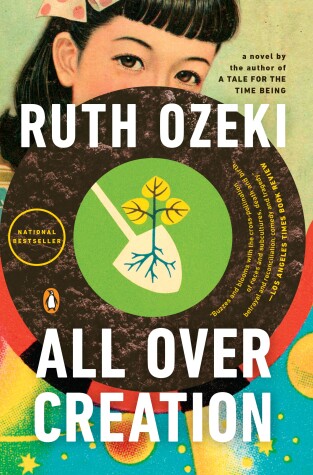Reviewed by brokentune on
All Over Creation is probably Ruth Ozeki's weakest book to date, and yet, I devoured it in just one hung-over weekend.
I'm not going to say much about the plot other than that it is the story of a family who split apart over a matter of principle and who are slowly coming to terms with each other, life, illness, death, and all the things around them.
Whilst Ozeki's writing is for the most part wonderful, I felt that All Over Creation was trying too hard to accomplish two things:
1. home in on the environmental message of the book; and
2. dwell on scenes and descriptions for dramatic effect.
The book did not need to do this and there were a few scenes where I felt that less would have been more - especially at the end.
However, I was moved and engaged, and it made me laugh and provided all "the feelz", and I will not hold the over-kill of emotional writing on a handful of scenes against the rest of a book that clearly engages a more intellectual appreciation for the way Ozeki formed her characters and gave them voices that are so real that I had no trouble imagining them.
As spaced out as my introductory quote sounds, there is much more to the book than the family saga and in a way there are two parallel stories - one about the family and one about the family business (selling plant seeds) - and sometimes it is not clear if the story is about the family or the seeds, and this metaphorical conundrum is where Ozeki's craft shows:
“But they’re ours. We have to keep them safe!” She shook her head. “No. Keeping is not safe. Keeping is danger. Only safe way is letting go. Giving everything away. Freely. Freely.”
Reading updates
- Started reading
- 24 May, 2015: Finished reading
- 24 May, 2015: Reviewed
